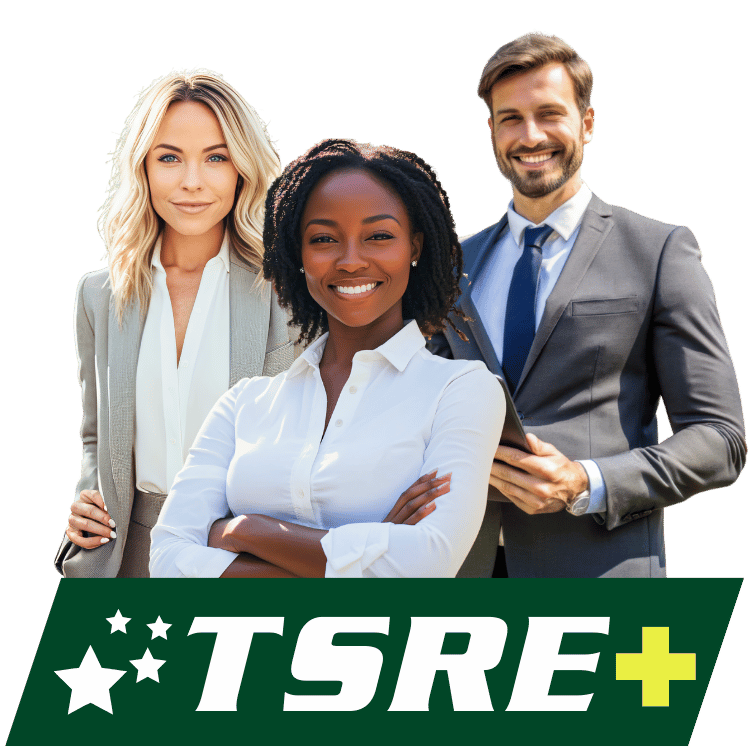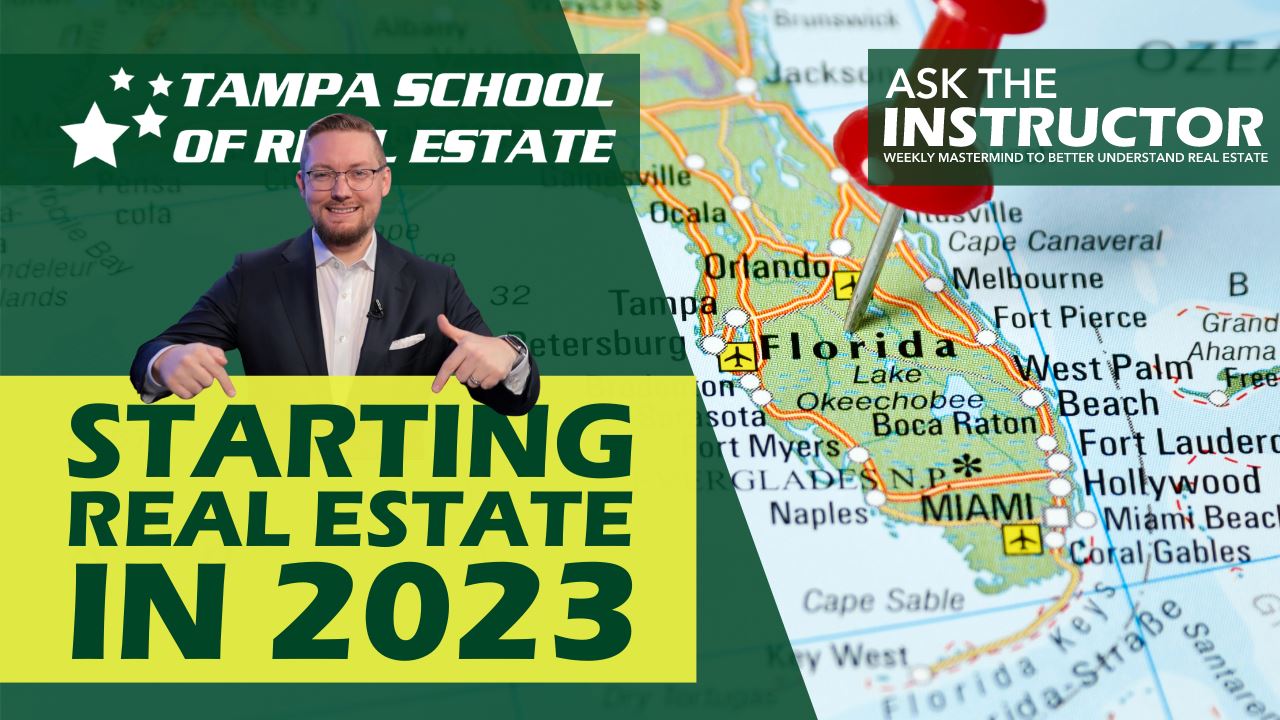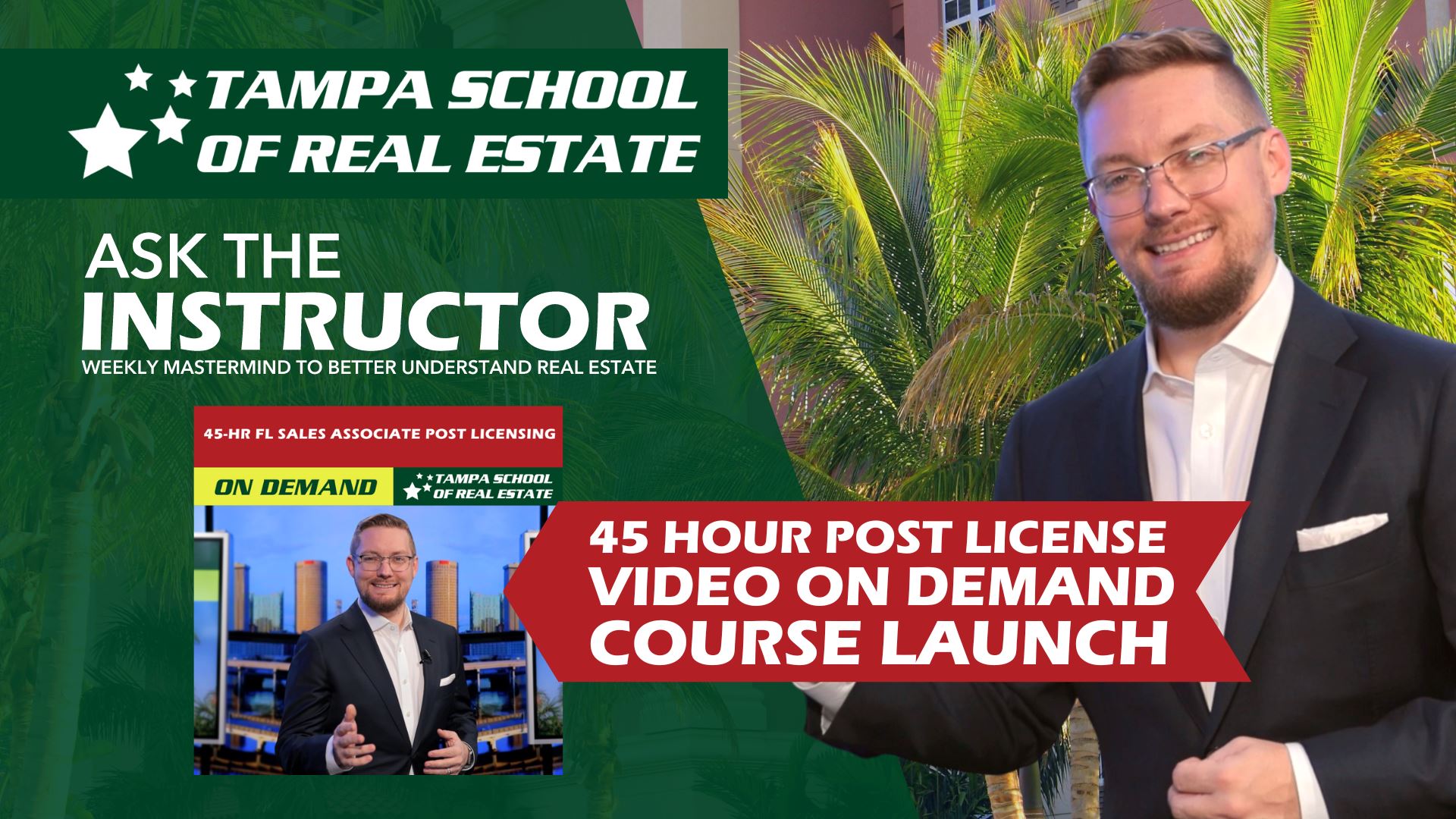💡 Florida Real Estate Exam Prep: Mastering Brokerage Relationships (and Why Transaction Broker is Your Best Bet!)
Studying for the Florida Real Estate Exam? You're not alone! One of the most critical and potentially confusing sections is understanding brokerage relationships in Florida. Getting this wrong could mean not only failing your exam but also facing legal trouble once you're a licensed Florida real estate professional.
In this post, inspired by Jon Carissimo's "Ask the Instructor" episode from the Tampa School of Real Estate, we're going to simplify the three types of brokerage relationships in Florida, spotlight the illegal one, and explain why the Transaction Broker is the default and often the smartest choice for your real estate career.
🚫 Dual Agency: The Florida Real Estate No-Go
First, let's clear up a major confusion point, especially for those who hold licenses in other states: Dual Agency is illegal in Florida (0:09, 0:31, 1:47).
-
What is Dual Agency? In states where it's legal, it means one brokerage (or agent) is representing both the buyer and the seller in a single transaction with a fiduciary duty to both.
-
Why is it illegal in Florida? Florida law considers it impossible for an agent to maintain full fiduciary loyalty to two opposing parties in a negotiation, creating an inherent conflict of interest.
The state takes this violation seriously, so understanding the legal relationships that are permitted is crucial for anyone preparing for the Florida real estate license exam.
🔑 The Three Legal Brokerage Relationships in Florida
Florida law outlines three legal relationships between a brokerage and a client, each carrying different duties. Remember, these are brokerage relationships, meaning the duties are owed by the entire brokerage (including the sales associate) to the client (0:50, 1:26).
1. Transaction Broker: The Default & Most Flexible Choice
The Transaction Broker relationship is the default relationship in Florida (1:00, 5:11). This is what you and your clients are assumed to be operating under unless a different, signed disclosure is in place.
| Feature | Details |
| Fiduciary Duty? | No (5:56, 6:09). This is a limited representation relationship. |
| Working with Both Sides? | Yes (1:00, 5:40). You can legally represent both the buyer and the seller in the same deal, avoiding illegal dual agency (4:31, 19:26). |
| Key Duties (AD-PUMA) | Accounting for all funds, Dealing honestly and fairly, Disclosing known material defects (21:30) (these three are always required). Plus: Presenting all offers, Using skill, care, and diligence, Mutually agreed duties, and Assuring Limited confidentiality (28:47, 30:59). |
| Why it's preferred | It offers maximum flexibility, allows an agent to earn double commission (4:11), and minimizes your exposure to complex fiduciary obligations (34:57). |
2. Single Agent: Full Fiduciary Duty
The Single Agent relationship is the only one in Florida that establishes a fiduciary relationship (4:03, 21:05). This relationship must be intentionally created and disclosed to the client.
-
Fiduciary Duties (COLD): This adds four significant duties (23:18) to the three basic ones (AD-D):
-
Confidentiality (Full) (23:18)
-
Obedience (23:24)
-
Loyalty (23:27)
-
Disclosure (Full Disclosure, not just material defects) (23:32, 23:48)
-
-
The Catch: Because of the loyalty duty, a single agent cannot represent both sides of the transaction. Doing so inadvertently creates illegal dual agency (33:00).
3. No Brokerage Relationship
In a No Brokerage Relationship, the brokerage is not representing the client in any agency or fiduciary capacity. You are simply acting as a facilitator for a buyer or seller.
-
Duties: You still have the three basic universal duties: Account for all funds, Deal honestly and fairly, and Disclose known material defects (21:10).
-
Key Distinction: You are not required to present offers (28:40) or exercise limited confidentiality, as you are not representing the client's interests. This relationship is rarely used.
🎯 Pass First Try: Your Next Step to Florida Real Estate Success
Understanding complex concepts like brokerage relationships and their specific duties is essential to pass your Florida Real Estate Exam. Don't leave your success to chance!
The Tampa School of Real Estate provides the exact tools and simplified information you need, focused exclusively on Florida law, to confidently ace the exam and launch your career.
Our Pass First Try Bundle is designed to provide comprehensive exam preparation, including:
-
The Pass First Try Strategy: A proven 4-step method for studying (38:53).
-
MP3 Audio Review: Review key topics while on the go (43:01).
-
Question Simulator: Practice with test questions that mimic the actual Florida real estate exam (41:02).
-
Secrets of the Real Estate Exam: Insider knowledge to master the testing format.
Don't just study—study smart with the experts in Florida Real Estate licensing!
➡️ Get Ready to Pass
Ready to cut through the confusion and get your Florida real estate license?
Register for the Pass First Try Bundle today and gain the knowledge, confidence, and preparedness to succeed!
Visit PassFirstTry.com now to secure your bundle and start studying with a strategy designed to help you pass your Florida Real Estate Exam first try!







2 comments
Terry Hatfield
I wanted to inform you that I took advantage of all the Pass the First Try tools. I was able to pass my State Exam on the first try two weeks ago!
I wanted to inform you that I took advantage of all the Pass the First Try tools. I was able to pass my State Exam on the first try two weeks ago!
Edwin Camacho
I don’t understand which one of the options is the one that mentions “not responsible for the agent’s actions” and why or how the actions of the agent could affect the seller.
I don’t understand which one of the options is the one that mentions “not responsible for the agent’s actions” and why or how the actions of the agent could affect the seller.